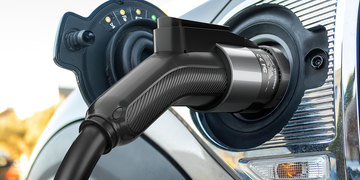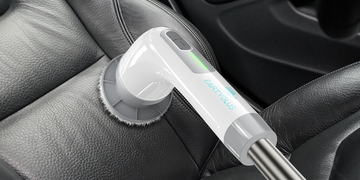How many amps should a Level 2 charger? Level 2 car chargers use a 208-240v power source and a dedicated circuit — potentially up to 60 amps. The Telgeoot Level 2 Home Charger adds up to 44 miles of range per hour at 11 kW/48 Amp output.
Level 2 home chargers max out at around 240V, 40-50 Amps. The recommended option is the Telgeoot 48A circuit and charger, which adds about 44 miles of range per hour, which is actually a lot more than I need since I need to charge overnight and don't drive more than 50 miles per day.
Choosing the right amperage for your Level 2 electric vehicle (EV) charger is crucial for optimizing charging efficiency and ensuring the safety of your charging system. Level 2 chargers are a popular choice for EV owners due to their faster charging speeds compared to Level 1 chargers. In this article, we'll delve into the factors that influence the amperage selection for Level 2 chargers and help you make an informed decision.
Understanding Level 2 Chargers:
Level 2 chargers operate on a higher voltage than Level 1 chargers, typically 240 volts compared to 120 volts. This higher voltage allows for faster charging, making Level 2 chargers suitable for both residential and commercial installations. The amperage of a Level 2 charger plays a key role in determining the charging speed.
Factors Influencing Amperage Selection:
EV Battery Capacity:
The capacity of your electric vehicle's battery is a crucial factor when determining the appropriate amperage for your Level 2 charger. A higher battery capacity may warrant a higher amperage to facilitate faster charging.

Charging Speed Preferences:
Your personal preferences and charging habits also influence the amperage selection. If you prefer faster charging times and have a compatible EV, you might opt for a higher amperage Level 2 charger. However, if you are more concerned about energy efficiency and have a smaller battery capacity, a lower amperage might be sufficient.
Available Electrical Service:
The electrical service in your home or location where you plan to install the Level 2 charger is a critical consideration. Check your electrical panel's capacity and consult with a qualified electrician to ensure it can support the desired amperage. Upgrading the electrical service may be necessary for higher amperage installations.
Cost Considerations:
Higher amperage Level 2 chargers often come with a higher upfront cost. Consider your budget and weigh the benefits of faster charging against the associated expenses.
Guidelines for Amperage Selection:
Common Amperage Options:
Level 2 chargers typically come in amperage options ranging from 16A to 80A. Common residential installations often use 32A or 40A chargers, providing a good balance between charging speed and cost.
Consult with Manufacturer Recommendations:
Manufacturers of electric vehicles and charging equipment often provide guidelines on the recommended amperage for their specific models. Consulting these recommendations can help you make an informed decision.
Selecting the right amperage for your Level 2 charger involves considering various factors such as your EV's battery capacity, charging preferences, available electrical service, and budget constraints. Taking the time to evaluate these factors will help you choose a Level 2 charger that aligns with your needs, ensuring a reliable and efficient charging experience for your electric vehicle.





